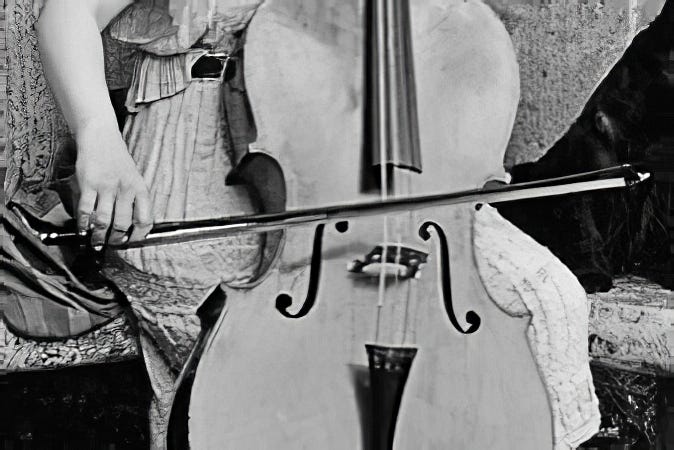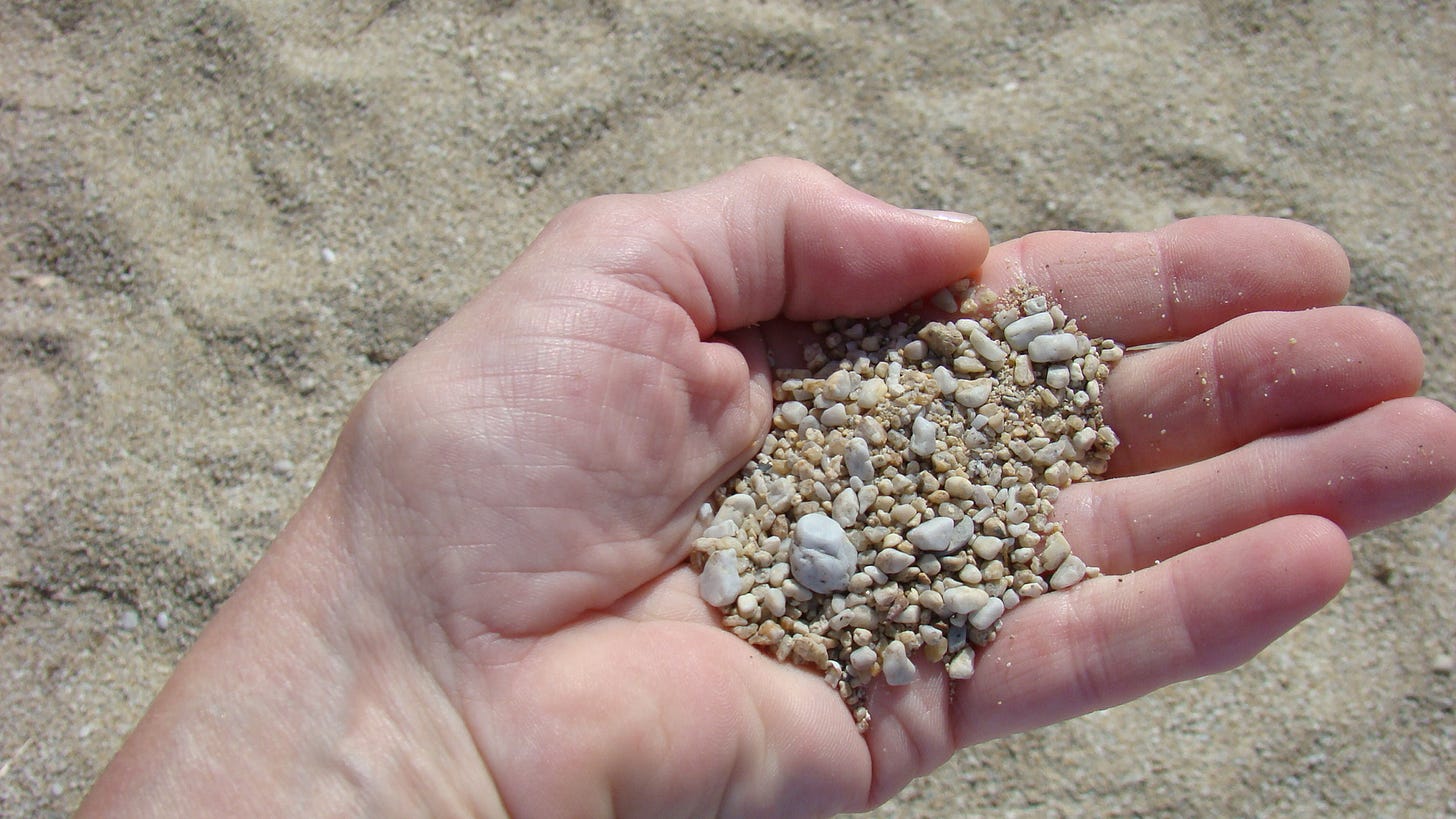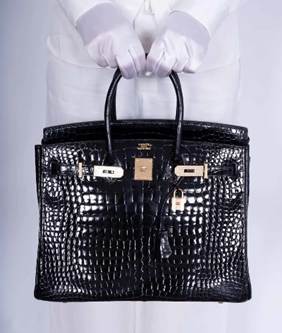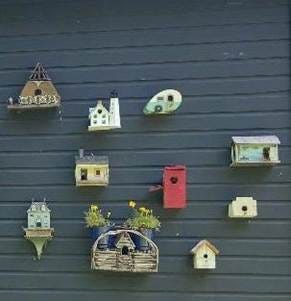QUIDDITY, 85
It Became More than That, Meanderings, and Hypatia's Bookroom
It Became More than That
From the time she was 15 until her passing in 2018, writing was an ever-present influencer in Leah Napolin’s life. Writing provided her with the platform to observe and comment on the events and people that were consequential in her world, - from the minute to the universal, from YENTL to THE DOGS OF PRYPIAT. Future issues of QUIDDITY will provide you with the opportunity to become familiar with some of her insights. **********
THE PACK RAT CHRONICLES
by LEAH NAPOLIN
PART 1
Once upon a time people who saved things were given public recognition, even prizes. I recall a newspaper photo of a woman who saved enough tinfoil to make a ball seven feet in diameter, which was then donated to the government to be used in the making of bombs and bullets to fight the Nazis. She posed, smiling, alongside this object, as impressive in size as the boulder from Indiana Jones' Temple of Doom, while the Secretary of Defense handed her a check. It was a photo worthy of Ripley's Believe It Or Not, that common bible of uncommon behaviors, and right up there with "World's Largest Candle Dripping" and "World's Biggest Ball of Twine." Yet no one would have dared to suggest that any of these good people had a screw loose. Or deserved their own reality show. There were no reality shows then, only reality. That was the age of thrift, of "Waste not, want not."
A product of that age? I sometimes wonder, nevertheless, what it is about second-hand stores with their promiscuous jumble of things that I find so hard to resist? Why is it that junk—the poetry of junk, the mute but eloquent language of trash—sets my heart to racing? Could it be in the blood?
My father was a lamp-maker who made lamps out of anything: vases, jardinieres, wooden barrels, wine bottles, old-fashioned milk cans, duck decoys. He was also an antique dealer, but of the generic kind, to whom anything old and curious is worth having, regardless of what period it comes from. These respectable occupations allowed him to indulge his appetite for acquiring things, an appetite which soon got out of hand. As it grew, so did the contents of not only his store, but our house, attic, basement and garage.
Often, his instinct happened to be right. With time any piece of junk can become a "collectible," and we had plenty of those. Kitschy bas-relief wall hangings, now called "deco." Fiestaware. Depression glass. But, curiously, no matter how much money he was offered to part with something, it was never enough, and he would relate with satisfaction how he turned down so-and-so's offer because it was insultingly low. Yet, he continued to think of himself as a businessman; after all, there was a family to feed, one needed to make a living. The real need, however, was to collect things and find a place to put them.
He was never happier than when he was moving into a new store, building cunningly contrived shelves out of scrap wood onto which he would his pile his boxes from floor to ceiling, from door to window, until there was no way in or out. All of a sudden the store he had thought ideal for his purposes was no longer ideal; it was too small, it was badly situated, the landlord was a no-goodnik. What happened next was as predictable as rain: the search for a new store would begin all over again.
This appetite, never satisfied, made him the perfect mark for people seeking to unload merchandise no one else wanted. Job lots, they were called. We never knew what he was going to bring home next. Once, it was 150 pounds of brazil nuts—oily, tasteless and next to impossible to crack. Another time, it was 500 icepick holders. And then there were the crucifixes—slightly beat-up plaster replicas of Jesus on the cross, suitable for sale at Christmastime to his devout gentile customers. We were Jewish, never even allowed to have a Christmas tree, yet I'll always remember the Hannukah we spent painting crucifixes on a drop cloth on the living room floor, dipping our brushes into little jars of gilt paint.
Every now and then my father's hauls would fetch up something of undeniable value—a piece of china or silver or brass or pottery or pewter—like the Tiffany lamp he and my mother picked up at a yard sale for five dollars. When that happened, the find would be taken home, wrapped in layers of newspaper, jammed into a cardboard box which was tied with electrical cord, knotted into knots, and most likely never seen again.
Serendipity spilled over into our private lives, as well. I asked for a bicycle and got a military surplus bike used by WWII paratroopers, which was designed to fold in half. Trouble was, it sometimes folded while you were riding it. I asked for a phonograph and got an antique wind-up victrola with a broken drive. Which explains why I may have the sole distinction of being able to sing along with Rosemary Clooney's "Come On-A My House," both forward and backward.
One day Mother discovered that the plug from our kitchen sink drain was missing. Yes, Daddy did recall taking it, but for what? And of course couldn't find it. Off he went to his basement workshop only to emerge, minutes later, with a water-logged golf ball into which he had halfway driven a large nail. When the handle on one of our saucepans broke he replaced it with a lamp top ornament called a finial. It was green and sparkly, but—like the sink plug—worked!
All of this made us laugh, or smile indulgently, or shake our heads in exasperation. But the fact was, the love I bore my charming, slightly eccentric father had its dark side. Consisting of shame, guilt for feeling shame, anger for feeling guilt. It was because of him that we weren't like other people.
Someone once remarked, "Your Dad's an artist, you know." Which startled me. My mother was the real artist, a gifted painter in oils. I'd never seen my father draw anything other than strange little programmatic faces made up of numbers, a drawing trick he'd picked up somewhere in his knockabout bachelor traveling salesman days. An artist how? If not by skill, then temperament? A way of seeing and responding to the world? It caused me to think hard about the wellsprings of creativity and prompted respect for him, if not understanding.
But life wasn't all sink plugs and saucepans, mirth and aggravation. There was also hardship, since virtually all the money my father made was diverted into buying merchandise for his store, more merchandise than he could ever have sold in his most grandiose dreams. It was the reason we thought of ourselves as poor; the reason my mother, a good seamstress, made all of our clothes; the reason she cut up old bedsheets and sewed them together to make "new" ones, or recycled them into curtains which, in turn, sometimes became bedsheets again; the reason frugality came to be enshrined in our household above almost every other virtue.
(to be continued)
###
MEANDERINGS: “Take a Break”
This season of the discontent of our zeitgeist brings to mind the archival, black and white version of Shakespeare’s historical tragedy, starring Laurence Olivier, in which the deformed and envious brother of the new king turns to the camera in the opening scene and laments:
“Now is the winter of our discontent Made glorious summer by this son of York And all the clouds that loured upon our homes In the deep bosom of the ocean buried”
These first four lines of Richard III mirror our first days of June, 2025. But, no matter how dreary, confusing, and threatening it is, my angst is demanding a brief break from the “slings and arrows of outrageous fortune.” Therefore, I invite you to share a mini escape into a few moments of humor, head-scratching, and contemplation.
I came across this meme by accident, but it’s been added to my collection of images that I will not forget whenever I need a good laugh.
There's a number so large it cannot be written down in decimal form, even if every atom in the universe were used as a digit. It’s bigger than a googol (10100) but smaller than infinity. The name of this mind-bendingly large, but finite number, is Graham's Number. Psst, there’s one even larger: According to Live Science, TREE(3) is so large that it dwarfs even Graham's Number. —You’re welcome.
3. A recent New York Times article examined the ever present question “Does It Matter How a Cello Is Held?” I was denied the opportunity to play the cello when I was in the fifth grade because we were told by the nuns that it was unladylike. This restriction resulted in our having a chamber music group without a cello. But, we did have two violas; I misplayed one of them. Ah, if only Sister Jerome had known about the sidesaddle form or hanging the cello from a strap like a guitar or a saxophone. Perhaps…


-WEBP File -kenjameskubota
4. About a week ago, I exhibited my penchant for malapropisms in a text message sent to a friend about our current global state of affairs: “Just wanted to pop in to say hello. The world seems like it’s going to hell in a handbag…” Both you and I know perfectly well that the traditional aphorism is …hand basket. But, in my defense, I’ve thought about the viability of using handbag to describe today’s real world situation. Just consider this one BIRKIN BAG and its retail price.
Hermès Birkin 35 Black Shiny Porosus Crocodile 18K Yellow Gold and Diamond Hardware, @Jane Finds Sale price: $185,000.00
So, I ask you: Okay to use Handbag to help describe our road to the fiery netherworld?? Works for me.
My sister-in-law and her husband have an old barn situated on their property that lazes beside a true New England stream. Over the years, they have collected a multitude of bird houses of varying sizes and shapes, each more charming than the other. Lovingly restored, curated, and hung on the side of the sleeping barn, these miniature homes welcome migrating or nesting birds without any restrictions or pre-conditions.
Something to consider when thinking about our own housing and immigration crisis.
###
HYPATIA’S BOOKROOM
A New Kind of Library
“I have always imagined that Paradise will be a kind of a Library.” –Jorge Luis Borges
QUIDDITY, is building its own library of books that are of importance to us--intellectually, emotionally, spiritually, ethically, etc.-- books that we would definitely rescue from a trash pile. We’re calling it Hypatia's Bookroom after the chief librarian of the ancient library of Alexandria. Tell us the title, author, category, and why this book is important to you. Questions you might consider include: Would you read this book again? Would you gift it to someone (who, why)? What note would you write on the cover page?
On the shelves so far: The rescued books selected by readers has grown and takes up too much space to list them all here. You can peruse the entire listing by going to the blog section of my website at blmurphy.com.
"There are so very many books, and we have forgotten almost all of them." (Lit.Hub) May we save all we can.
Kafka’s ideal of what a book should be: “An ax for the frozen sea within us.” (Sigrid Nuez interview in “By the Book,” NYT Book Review, 12/10/23)
**********
On June 4, 2025, Everylibrary published the following list of the most current incidents of book banning.
“First, they came for libraries...”
First, Book Banners Came for School Libraries. Book challenges across the country hit record highs as public schools and libraries have been targeted by continued efforts to censor books.
Then, They Came for School Librarians. School librarians now risk prison and hefty fines under new state laws criminalizing the distribution of books.
Then, They Came for Public Libraries. A growing number of lawmakers are escalating book bans by threatening to defund public libraries, undermining free access to information and democratic values.
Then, They Came for Public Librarians. Proposed legislation in several states would lead to librarians facing criminal charges for the books on the shelves or simply being a member of their professional association. Other measures offer bounties of $10,000 to anyone who wants to ban a book.
Then, They Came for Your Little Free Libraries. Book bans are now targeting Little Free Libraries, with Utah officials threatening legal action against those sharing banned books.
Then, They Came for Bookstores.
Then, They Came for Publishers. In May 2023, Tennessee enacted a law exposing book publishers and sellers to felony charges for distributing materials to public schools that could later be deemed obscene. Penalties include imprisonment for up to six years and fines of up to $100,000.
Then, They Came for Academic Libraries. In the 2023–2024 school year, more than 10,000 books were banned from U.S. public and academic libraries, tripling the previous year's number.
Then, They Came for Military School Libraries. The Department of Defense has ordered schools for military families to remove books and lessons related to immigration, gender, and sexuality, citing compliance with new federal guidelines.
Then, They Came for the Military Academy Libraries. In May 2025, the Pentagon ordered military academies to remove books on diversity, gender identity, and race, labeling them "divisive."
Then, They Came for the National Archives
In early 2025, Archivist Colleen Shogan was fired and replaced with Marco Rubio, the Secretary of State.Then, they came for the Institute of Museum and Library Services. In March 2025, nearly all staff of the Institute of Museum and Library Services (IMLS) were placed on administrative leave.
Then, they came for the Library of Congress. In May 2025, the Librarian of Congress Carla Hayden was fired via email, citing concerns over her diversity initiatives and the selection of children's books.









